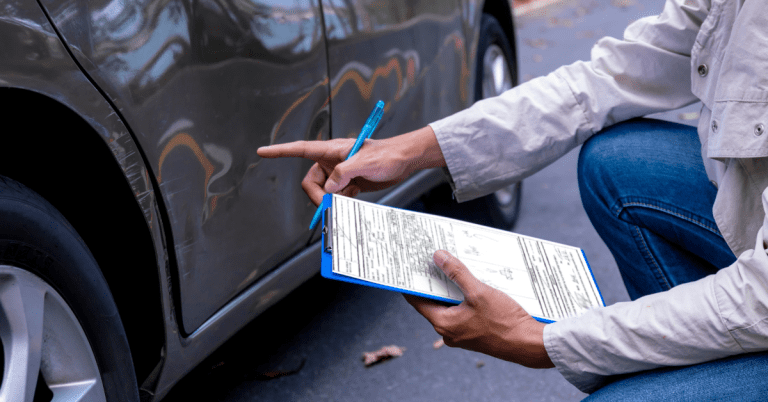Can Battery Corrosion Cause Car to Stall? Discover the Shocking Truth!
Yes, battery corrosion can cause a car to stall. Corrosion on the battery can disrupt the flow of electricity, leading to an inadequate supply of power to the engine, resulting in stalling.
Battery corrosion can have detrimental effects on the performance of a car’s engine. When corrosion accumulates on the battery terminals, it can impede the flow of electricity and disrupt the overall functioning of the vehicle. One of the possible consequences of battery corrosion is the stalling of the car.
As the corrosion builds up, it can cause a poor electrical connection between the battery and the engine, resulting in an inadequate supply of power. This, in turn, can cause the car to stall while driving or even prevent it from starting altogether. Therefore, it is crucial to understand the effects of battery corrosion and take preventative measures to ensure the smooth operation of your vehicle.
Understanding Battery Corrosion
Battery corrosion is a common issue that many car owners have encountered at some point. It refers to the gradual buildup of acid residue and rust on the terminals and connectors of a car battery. If left untreated, battery corrosion can not only affect the performance and lifespan of the battery but can also lead to various electrical problems, including causing the car to stall unexpectedly.
What Is Battery Corrosion?
Battery corrosion occurs when chemical reactions take place between the sulfuric acid electrolyte inside the battery and the metal terminals or connectors. Over time, these reactions can create a crusty blue or greenish substance, commonly known as battery corrosion.
Causes Of Battery Corrosion
There are several factors that can contribute to the occurrence of battery corrosion:
- Excessive heat: High temperatures can accelerate the corrosion process, leading to faster buildup of residue on the battery terminals.
- Prolonged exposure to moisture: Water or moisture can react with the sulfuric acid in the battery, creating the ideal conditions for corrosion to occur.
- Poor battery maintenance: Neglecting regular battery maintenance, such as cleaning and inspecting the terminals, can allow corrosion to develop and worsen over time.
- Overcharging: Overcharging the battery can cause the electrolyte to boil, resulting in the release of corrosive gases and increased likelihood of corrosion.
- External factors: Environmental pollutants, road salt, and other contaminants can also contribute to the formation of battery corrosion.
Signs Of Battery Corrosion
It’s important to be able to recognize the signs of battery corrosion before it causes significant damage to your car’s electrical system. Look out for the following indicators:
- Visual signs: Observe if there is any buildup of blue or greenish residue on the battery terminals or connectors. This is a clear indication of battery corrosion.
- Poor electrical connections: If your car experiences intermittent electrical issues, such as flickering lights or difficulty starting, it could be a result of poor electrical connections caused by corrosion.
- Battery leakage: Corrosion can lead to battery leakage, which can manifest as a sticky or acidic substance around the battery, accompanied by a foul smell.
- Battery swelling: Severe corrosion can cause the battery casing to swell or bulge, indicating a more advanced stage of battery damage.
Effects Of Battery Corrosion On Car Performance
Battery corrosion can disrupt the functioning of a car, potentially leading to stalling issues. This corrosion can affect the electrical connections, causing disruptions in the car’s performance.
Can Battery Corrosion Cause A Car To Stall?
Battery corrosion might seem like a minor issue, but it can actually have a significant impact on the performance of your car. One of the potential effects of battery corrosion is that it can lead to your car stalling unexpectedly. This can be not only inconvenient but also dangerous, especially if it happens while you’re driving on a busy road or in a hazardous situation.
Other Performance Issues Caused By Battery Corrosion
In addition to stalling, battery corrosion can cause a range of other performance issues in your car. Here are some of the common problems that can arise:
- Difficulty starting your car: Corrosion can interfere with the flow of electricity from the battery to the rest of the car’s electrical system, making it harder to start your engine. You may find yourself turning the key multiple times before the engine finally roars to life.
- Dim or flickering headlights: If the battery terminals are corroded, it can affect the electrical current reaching the headlights, causing them to appear dim or flicker. This can significantly compromise visibility, especially during nighttime driving.
- Electrical malfunctions: Corrosion can disrupt the electrical connections in your car, leading to various malfunctions in different systems. These malfunctions can include issues with the power windows, radio, air conditioning, or even the engine control module.
- Reduced fuel efficiency: A corroded battery can put increased strain on the alternator, which is responsible for recharging the battery and providing power to the electrical components of the car. This increased strain can lead to decreased fuel efficiency, meaning you’ll be making more frequent trips to the gas station.
It’s clear that battery corrosion is not something to be taken lightly. Ignoring the signs of corrosion can not only result in a car stalling but also impact various aspects of your vehicle’s performance. Regularly inspecting and cleaning your battery terminals can help prevent these issues, ensuring that your car runs smoothly and safely.
Prevention And Treatment Of Battery Corrosion
Battery corrosion is a common problem faced by car owners, and if not addressed promptly, it can even cause the car to stall unexpectedly. To prevent this issue and ensure the smooth functioning of your vehicle, it is essential to understand the prevention and treatment measures for battery corrosion. In this article, we will discuss some effective tips to prevent battery corrosion, the correct method to clean corrosion, and when it is necessary to replace a corroded battery.
Tips For Preventing Battery Corrosion
Preventing battery corrosion is crucial to maintain the longevity of your car’s battery and avoid any potential malfunctions. Here are some valuable tips to help you prevent battery corrosion:
- Ensure a tight fit: Make sure the battery is securely fastened in the battery tray. A loose battery can cause vibrations, leading to increased acid leakage and subsequent corrosion. Regularly check the battery’s position and tighten any loose connections.
- Apply a grease or petroleum jelly coating: After cleaning the battery terminals (which we will discuss shortly), apply a thin layer of grease or petroleum jelly to the terminals. This protective coating acts as a barrier, preventing corrosion-causing elements, such as moisture and acidic fumes, from reaching the terminals.
- Keep the battery clean and dry: Regularly inspect the battery for any signs of dirt or debris accumulation. Clean the battery’s surface using a damp cloth or a soft brush to remove any particles that might increase the chances of corrosion. Remember to dry the battery thoroughly to prevent moisture build-up.
- Invest in a battery insulator: Consider using a battery insulator or a terminal protector spray. These products provide an additional layer of protection against corrosion-causing elements, shielding the terminals from potential damage.
- Check the charging system: Faulty charging systems can cause excessive battery charging, resulting in the release of harmful gases and increased corrosion. Regularly inspect the battery charging system to ensure it is functioning correctly and have it promptly repaired if any issues are detected.
How To Clean Battery Corrosion
Regular cleaning of battery corrosion is crucial to the overall health of your car’s battery. Follow these steps to effectively clean battery corrosion:
- Prepare the necessary items: Before starting the cleaning process, gather safety equipment such as gloves and safety glasses, a wire brush, baking soda, water, and a clean cloth.
- Disconnect the battery: Start by disconnecting the battery cables. It is essential to remove the negative cable first, followed by the positive cable.
- Mix a baking soda solution: In a small container, mix about two tablespoons of baking soda with enough water to form a paste-like consistency.
- Clean the terminals: Using the wire brush, scrub the battery terminals and cables, dipping the brush into the baking soda solution to remove any visible corrosion. Ensure that all the corrosion is thoroughly removed.
- Rinse and dry: Once the corrosion is removed, rinse the battery terminals and cables with clean water. Dry them using a clean cloth.
- Reconnect the battery: Reconnect the battery cables, ensuring that the positive cable is connected first followed by the negative cable. Tighten the connections securely.
When To Replace A Corroded Battery
While regular maintenance and cleaning can prevent battery corrosion to a certain extent, there may come a time when the damage is beyond repair. Here are some signs that indicate it’s time to replace a corroded battery:
- Decreased battery performance and frequent jump-starts.
- Visible cracks or leaks on the battery casing.
- Difficulty in starting the vehicle, even after cleaning the terminals and cables.
- Excessive corrosion that keeps returning despite cleaning.
- An old battery that has surpassed its average lifespan, which is typically around 3 to 5 years.
By following these prevention and treatment measures, you can effectively control and manage battery corrosion, ensuring your car runs smoothly and minimizing the risk of unexpected stalling incidents. Regular maintenance and cleaning will not only extend the battery’s lifespan but also contribute to the overall performance and reliability of your vehicle.
Conclusion
To summarize, battery corrosion can indeed cause a car to stall. This is due to the build-up of residue on the battery terminals, leading to poor electrical connections and a decrease in battery performance. Preventive measures such as regular battery maintenance and cleaning can help avoid such issues.
Remember, a well-functioning battery is crucial for the smooth operation of your vehicle. So, stay proactive in maintaining your battery’s health to avoid unexpected stalling incidents.






